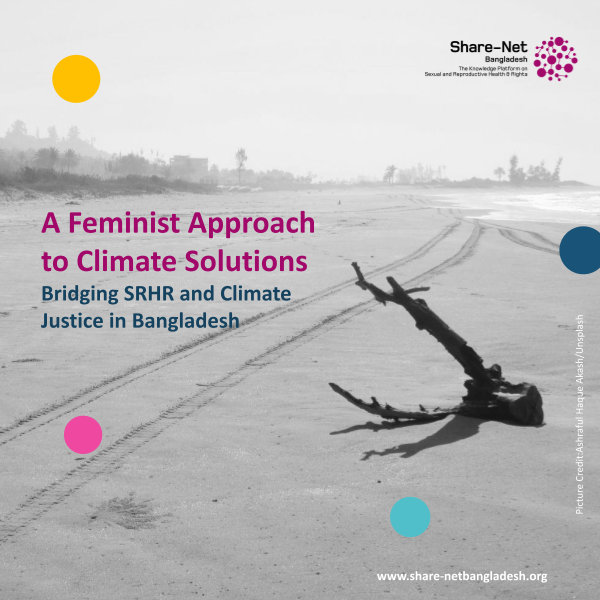A Feminist Approach to Climate Solutions: Bridging SRHR and Climate Justice
“Participation in climate and environmental decision-making is a human right, and the equal participation of people of all genders generates outcomes that are more effective and sustainable.”
Despite growing awareness of the climate crisis, gender disparities persist in climate negotiations. At COP28, women made up only 34% of national delegations, highlighting a glaring gap in representation. A feminist approach to climate solutions not only addresses this imbalance but also integrates Sexual and Reproductive Health and Rights (SRHR) into the conversation.
The Intersection of Gender and Climate Impacts
Women, girls, and gender minorities are disproportionately affected by climate change. Limited access to resources, caregiving responsibilities during crises, and socioeconomic vulnerabilities intensify their climate-related challenges. Integrating SRHR into climate action is vital. Women’s empowerment means not just representation but also the right to make decisions about their bodies, health, and lives, especially in the context of climate-induced disasters.
Local Leadership and Grassroots Solutions
Empowering Indigenous and local women is key to effective climate action. These communities often possess invaluable knowledge about sustainable land use and conservation. For instance, ActionAid Bangladesh (AAB) has championed women-led initiatives in disaster risk management and sustainable agriculture for decades. Such localised approaches demonstrate the effectiveness of integrating SRHR into climate resilience efforts.
Intersectionality: Understanding Complex Identities
The framework of intersectionality sheds light on how various social identities intersect with climate impacts. Environmental racism, exemplified by the plight of the Dalit community in Bangladesh, underscores the urgency of addressing these overlapping oppressions. Indigenous communities, facing disproportionate climate impacts, highlight the importance of Indigenous rights and knowledge in conservation efforts. Moreover, people with disabilities require inclusive emergency planning to address climate-induced accessibility barriers and health concerns.
Feminist Economics: Rethinking Growth and Finance
A feminist approach challenges the extractive obsession with economic growth and emphasises economic justice. Addressing poverty, especially its multifaceted dimensions affecting women and youth, is crucial. Additionally, making the new Loss and Damage Fund gender-responsive can help bridge the economic gaps exacerbated by climate change.
Collaboration for Climate and Gender Justice
Effective climate and gender justice require collaboration between governments, NGOs, and grassroots organisations. Investing in evidence-based policy advocacy, capacity building, and community engagement can integrate SRHR into climate change planning. Collaboration also ensures that climate action is inclusive and equitable, with a focus on locally-led Gender Just Climate Solutions.
If not now, then when?
A feminist approach to climate solutions offers a roadmap for a more equitable and sustainable future. By prioritising gender equality, SRHR, and social justice, we can create synergies between climate action and sustainable development. Policymakers, NGOs, and grassroots organisations must work together to ensure that climate solutions are inclusive, rights-based, and grounded in the realities of those most affected by climate change.
In the quest for climate justice, integrating SRHR is not just an option but a necessity. As we confront the climate crisis, let us remember that gender equality and reproductive rights are integral to building a resilient and sustainable world for all.
Source: The Daily Star
Source Contributor: Ms. Farah Kabir, Country Director, ActionAid Bangladesh
Picture Credit: Ashraful Haque Akash/Unsplash


